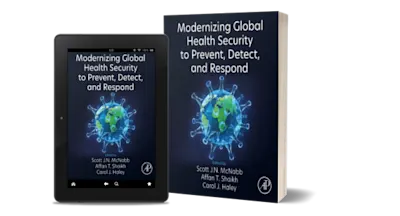Limited Offer
Save 50% on book bundles
Immediately download your ebook while waiting for your print delivery. No promo code needed.

Drug Discovery in the Microbiome: Discovery and translation of microbiome therapeutics provides a comprehensive outlook on novel therapeutic opportunities arising from microbiome… Read more
Limited Offer

AP
Dr. Palermo investigates metabolism in health and disease by high-throughput omics such as metabolomics, transcriptomics, and systems biology. Her areas of focus include the discovery of active molecules and druggable metabolic vulnerabilities in the context of cancer, immunity, and the microbiome. Her interests also encompass the development of novel platforms for processing samples at high-throughput and with single cell resolution, and of improved tools for multi-omics "big data" integration and interpretation for precision approaches.
SG
Dr. Gibbons directs microbiome and precision medicine research efforts at the Institute for Systems Biology (ISB). His lab develops computational and wet-lab tools for exploring and engineering host-microbe systems. Specifically, he is interested in understanding the ecological and evolutionary rules underlying the behavior of commensal microbiota well enough to build mechanistic or statistical models that enable personalized engineering of the functional outputs of the system to prevent or treat complex human diseases.